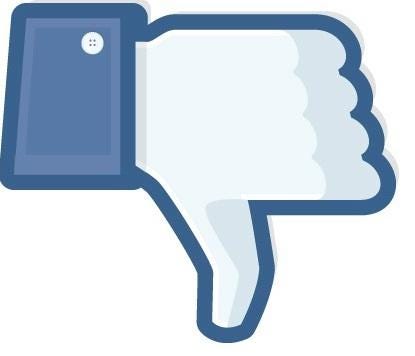Facebook Unfriends In-App Mobile Messaging
Facebook is phasing out the in-app chat feature in its iOS and Android apps and wants users to download a separate app to chat with friends.


10 Famous Facebook Flops
10 Famous Facebook Flops (Click image for larger view and slideshow.)
Facebook's $19 billion purchase of WhatsApp earlier this year left many wondering what the future held for the company's own messaging app, Facebook Messenger. The social network's latest move makes its intentions clear: Messenger is here to stay.
Facebook confirmed that it plans to kill the messaging feature in its main iOS and Android apps and instead require users to download Messenger to chat with friends. Some Facebook users in Europe already received notifications alerting them to the change.
Users will have two weeks to download Messenger before the service in the main Facebook app disappears, according to TechCrunch, which first reported the news. Facebook will alert users several times before the feature disappears, though no date has been set.
[Get a grip on your account. Read 10 Most Misunderstood Facebook Privacy Facts.]
"We have built a fast and reliable messaging experience through Messenger and now it makes sense for us to focus all our energy and resources on that experience," a Facebook spokesperson said in a statement to InformationWeek.
Messenger is faster than the messaging service currently built into the main Facebook app, Facebook said. Separating the two will likely make its main app faster as well.
{image 1}
Speed aside, users might not be pleased with Facebook's mandate to require two separate apps. The social network maintains that although the apps might be separate, they will be seamlessly integrated. On iOS, for example, you can tap the blue banner in Messenger to return you to the main Facebook app. Facebook compares switching between the apps to moving from your news feed to your messages tab.
Facebook launched Messenger in August 2011 to compete in the increasingly hot mobile messaging market. Today, users can message individuals or groups of friends; share locations and photos; record voice messages; and place video calls.
Although the two apps share many of the same features, Messenger has yet to reach the same levels of adoption as WhatsApp. In a conference call announcing the WhatsApp acquisition, Facebook CEO Mark Zuckerberg acknowledged this and explained the two different uses: Generally, people don't use Messenger to communicate in real time, he said, while WhatsApp users do.
Although the change will affect most mobile app Facebook users, Facebook won't require it for lower-end Android devices with memory limitations -- these users can still chat in-app, the company said. Facebook's iPad app is not affected either, though that will likely change.
Trying to meet today's business technology needs with yesterday's IT organizational structure is like driving a Model T at the Indy 500. Time for a reset. Read our Transformative CIOs Organize For Success report today (free registration required).
About the Author
You May Also Like






